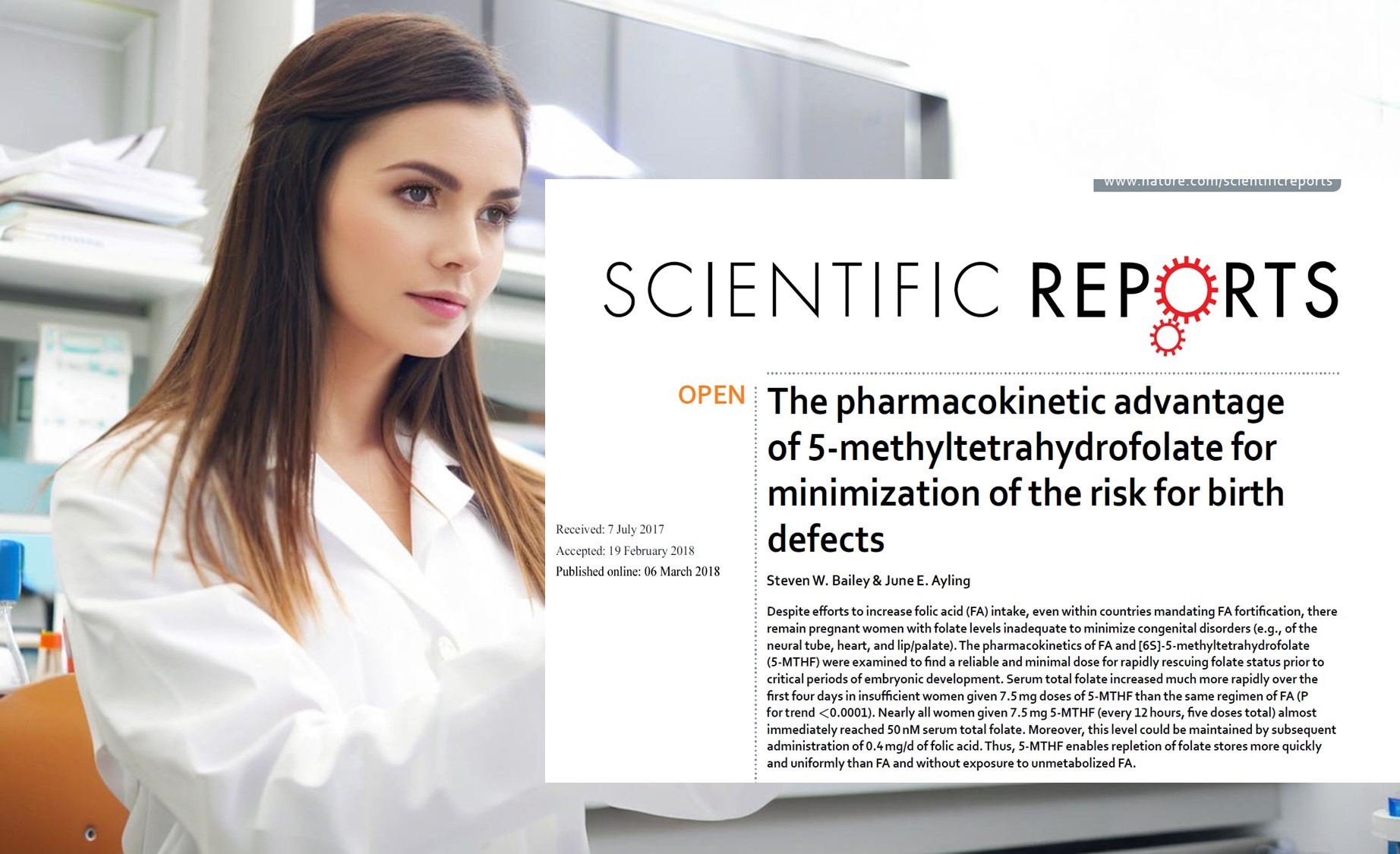I remember that afternoon in the obstetrics and gynecology clinic, with dappled sunlight around me. I sat there, clutching my prenatal report, my fingers trembling. The report stated that my serum folate level was below 25nM, indicating a folate deficiency.‘’

I had meticulously planned for pregnancy, even starting on folic acid supplements well in advance. So, how did this happen? Looking around at the other expectant mothers—some brimming with anticipation, others equally anxious—I realized that folate supplementation is a silent "battle" many of us are fighting.
I. The Importance of Folate Supplementation
Many of us have only a superficial understanding of folate supplementation. We know it's crucial for fetal development, especially in preventing neural tube defects. A folate deficiency can lead to severe issues like spina bifida and anencephaly, as well as preterm birth and low birth weight. However, many fall into the misconception that simply taking folic acid supplements is enough. Yet, scientific research has shown that traditional folic acid (FA) has significant limitations in absorption and utilization within the body.

Between 2017 and 2018, Steven W. Bailey and June E. Ayling from the Department of Pharmacology at the University of South Alabama conducted a pivotal study, published in the 2018 "Scientific Reports." They recruited 61 childbearing women with serum folate levels below 25nM for a pharmacokinetic study.

The results revealed that 5-methyltetrahydrofolate (5-MTHF) has a significant advantage in boosting serum folate levels. Women who received 7.5 dosesmg of 5-MTHF every 12 hours for five consecutive times saw a marked increase in serum folate levels on the first day of medication. By 12 hours after the last dose, the average total serum folate reached 213.8nM.

In contrast, the traditional FA group showed a much slower response, with an average total serum folate of only 54.4nM, and most levels remained below 50nM.
This stark contrast made me realize that the regular folic acid tablets I had been taking might be the "culprit" behind my defeat in this "folate supplementation battle."
II. My Friend Lisa's Experience
My friend Lisa had a similar experience. When she became pregnant, she was over the moon. However, during a prenatal check-up, her doctor informed her of a folate deficiency. Lisa felt her world crumble, recalling, "My mind went blank, filled with self-reproach. I thought I might have harmed my baby by not supplementing folate properly."

Fortunately, her doctor introduced her to 6S-5-methyltetrahydrofolate, also known as Magnafolate. Under the doctor's guidance, Lisa began taking it, and over time, her folate levels returned to normal, and her baby's development got back on track.
III. The Advantages of Magnafolate
As someone who has used folate supplements, I can attest that since switching to Magnafolate, my regular check-ups have shown a steady increase in serum folate levels, like watching hope grow bit by bit.
Magnafolate is a high-quality ingredient in active folate, the key component for rapid folate supplementation. The Magnafolate-based supplements we take, after strict processing and certification, better meet our folate needs during pregnancy.

Scientific protection is closer than we imagine. Understanding the science of folate supplementation and choosing the right method is like laying solid bricks on the path to our baby's health.
Magnafolate is like a reliable guide, leading us toward a hopeful future. I hope every expectant mother will take folate supplementation seriously, allowing their babies to thrive under the care of love and health.

Reference: Bailey SW, Ayling JE. The pharmacokinetic advantage of 5-methyltetrahydrofolate for minimization of the risk for birth defects. Scientific Reports. 2018;8:4096.

 Español
Español Português
Português  русский
русский  Français
Français  日本語
日本語  Deutsch
Deutsch  tiếng Việt
tiếng Việt  Italiano
Italiano  Nederlands
Nederlands  ภาษาไทย
ภาษาไทย  Polski
Polski  한국어
한국어  Svenska
Svenska  magyar
magyar  Malay
Malay  বাংলা ভাষার
বাংলা ভাষার  Dansk
Dansk  Suomi
Suomi  हिन्दी
हिन्दी  Pilipino
Pilipino  Türkçe
Türkçe  Gaeilge
Gaeilge  العربية
العربية  Indonesia
Indonesia  Norsk
Norsk  تمل
تمل  český
český  ελληνικά
ελληνικά  український
український  Javanese
Javanese  فارسی
فارسی  தமிழ்
தமிழ்  తెలుగు
తెలుగు  नेपाली
नेपाली  Burmese
Burmese  български
български  ລາວ
ລາວ  Latine
Latine  Қазақша
Қазақша  Euskal
Euskal  Azərbaycan
Azərbaycan  Slovenský jazyk
Slovenský jazyk  Македонски
Македонски  Lietuvos
Lietuvos  Eesti Keel
Eesti Keel  Română
Română  Slovenski
Slovenski  मराठी
मराठी  Srpski језик
Srpski језик 








 Online Service
Online Service